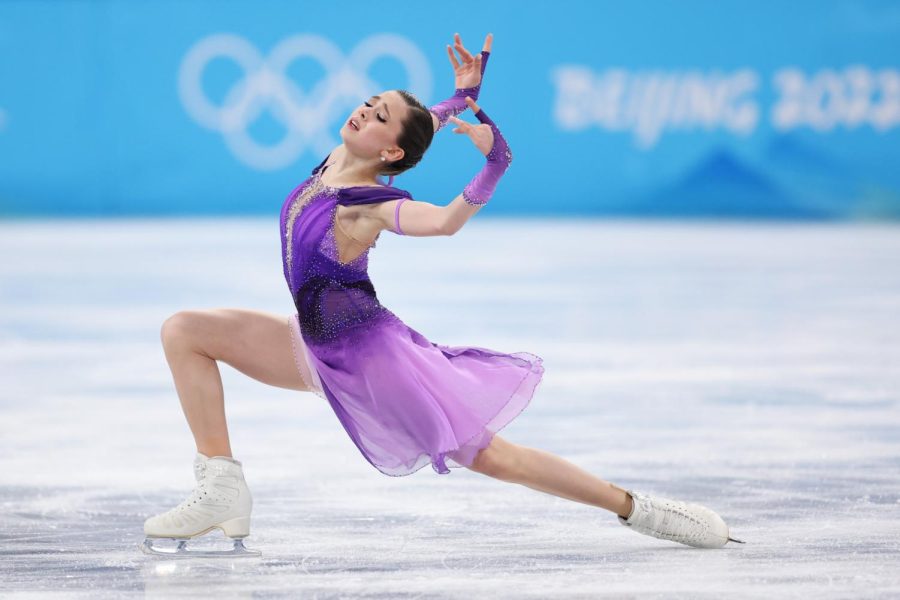Is the IOC biased in doping punishments?
Russian figure skater Kamila Valieva tests positive for banned subbstances prior to the 2022 Beijing Olympics.
March 8, 2022
The answer is yes; this has been proven true with the response of Kamila Valieva testing positive for a performance-enhancing drug, trimetazidine. This drug helps metabolize fatty acids, which helps your body use oxygen. The drug allows for more blood flow to your heart and limits quick changes in your blood pressure. The same sample also found L-carnitine and hypoxen, two substances that are allowed, but significantly help cardiovascular performance during competition. She tested positive in December 2021 but was still allowed to compete. The news has the public in fierce debate on whether the 15-year-old figure skater is to blame. Her coach is known for abusive tactics and the Russian Olympic Committee has faced a series of bans and medal strips since 2014 for allowing state-run doping programs.
The debate also includes race as a factor in Olympic punishments. Last year, Sha’Carri Richardson was unable to compete in the 2020 Tokyo Olympics after testing positive for marijuana. She received a 30-day suspension after using the substance following the death of her mother. Like many, Richardson was furious about the recent drama surrounding the Russian skater. The 21-year-old sprinter claimed the difference in ruling between her and Valieva was “all in the skin” and implied she received a harsher ruling than the teenager because she’s a “Black young lady.”
IOC spokesman Mark Adams disputed Richardson’s claims during a February 16th press conference. “You can’t talk about double standards in relation to Russian and American athletes, each case is individual, every single case is very different. Richardson tested positive on June 19th, 2021, quite a way ahead of the Tokyo Games. Her results came in early in order for USADA (US Anti-Doping Agency) to deal with the case on time, before the Games. I would suggest that there isn’t a great deal of similarity between the two cases.”
Valieva tested positive two months before the 2022 Olympics, was that not enough time? He is correct in there not being a similarity between the athletes at all. All signs point to Valieva having a much softer approach with tons of excuses as to why she is allowed to compete while cheating. This situation is not over however, Valieva and her coach will both be investigated, while her teammates could suffer their medals being stripped depending on the lengthy investigation upcoming.
Olympians and fans have expressed concerns over the mental and physical stress competing at a high level have on teenage athletes. Many want the minimum age requirement to be 17 or 18 years old to compete. Everyone hopes to see stricter doping punishments being enforced while protecting athletes from long-term emotional damage before the 2024 Paris Olympics.









